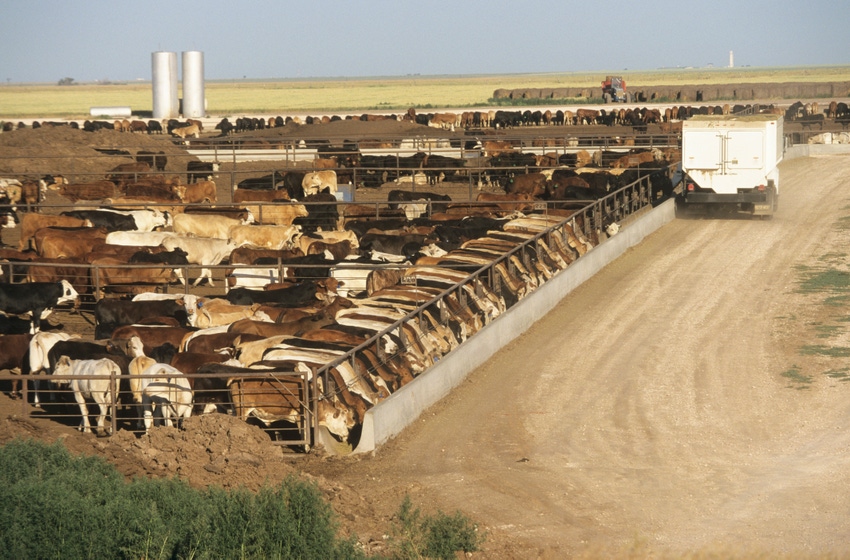NCBA contributing to Texas Tech research study of antimicrobial resistance in high-risk beef feedlot cattle.
October 1, 2020

Texas Tech University College of Agricultural Sciences & Natural Resources researcher Kristin Hales been awarded additional funding for a study of antimicrobial resistance (AMR) in high-risk cattle.
Hales, the Thornton distinguished chair and associate professor in the Texas Tech department of animal and food sciences, received a nearly $1 million grant in June from the U.S. Department of Agriculture's National Institute of Food & Agriculture (NIFA) for a project on this subject.
Now, the National Cattlemen's Beef Assn. (NCBA) is contributing to her work as well.
According to the announcement from Texas Tech, NCBA has awarded Hales a grant of $225,000 for her project that will evaluate the distribution of AMR genes and the occurrence of potential horizontal gene transfer in high-risk cattle. This grant will expand and enhance the NIFA grant, and the research will be conducted on the same set of cattle, Texas Tech said.
"Our research is designed to determine how decisions on metaphylaxis affect the impact on shedding of salmonella and antibiotic-resistant Escherichia coli and the potential for multi-drug-resistant [MDR] salmonella to develop and persist," Hales said.
The project funded by NCBA is in collaboration with the University of Nebraska-Lincoln and the U.S. Meat Animal Research Center in Clay Center, Neb. It involves conducting two studies with high-risk beef cattle to evaluate AMR reservoirs in feedlot cattle in order to enhance the understanding of the ecology, emergence and transmission of AMR, specifically MDR salmonella and E. coli, Texas Tech said.
Microorganism cultures, or isolates, identified as MDR will then undergo whole-genomic sequencing to determine AMR genetic relationships between E. coli and salmonella and whether use of antimicrobials or a type of antimicrobial potentially contributed to that transfer.
Horizontal gene transfer is the movement of genetic material between organisms in ways other than the transmission of DNA from parent to offspring, the announcement explained. It allows bacterial species to exchange genetic material, which can include AMR genes. This can result in those genes being resistant to multiple drugs and allow zoonotic pathogens, such as salmonella, to form resistance to multiple antimicrobials.
Hales expects results to show which isolates test positive for MDR and, utilizing genome sequencing, to determine any potential gene transfer by evaluating gene sequence variants between E. coli and salmonella.
Antimicrobials are used in the beef cattle industry for disease prevention and treatment, and this use can contribute to the emergence of drug-resistant bacterial pathogens, Texas Tech said, noting that another concern is liver abscesses in beef cattle. These abscesses also are treated through use of the antimicrobial tylosin phosphate.
Being able to reduce the use of antimicrobials while still keeping cattle healthy is crucial to the beef industry, Texas Tech said. Study results are meant to provide a better understanding of the development and persistence of AMR in feedlot cattle and will aid in evaluating novel direct-fed microbials as an alternative to tylosin phosphate.
You May Also Like


.png?width=300&auto=webp&quality=80&disable=upscale)
